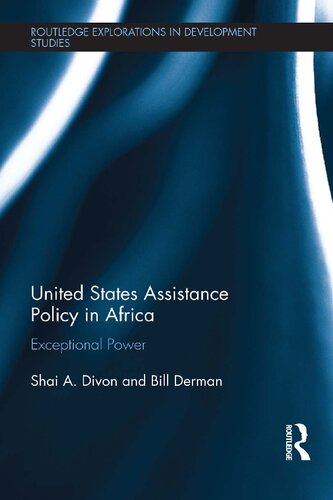

Most ebook files are in PDF format, so you can easily read them using various software such as Foxit Reader or directly on the Google Chrome browser.
Some ebook files are released by publishers in other formats such as .awz, .mobi, .epub, .fb2, etc. You may need to install specific software to read these formats on mobile/PC, such as Calibre.
Please read the tutorial at this link: https://ebookbell.com/faq
We offer FREE conversion to the popular formats you request; however, this may take some time. Therefore, right after payment, please email us, and we will try to provide the service as quickly as possible.
For some exceptional file formats or broken links (if any), please refrain from opening any disputes. Instead, email us first, and we will try to assist within a maximum of 6 hours.
EbookBell Team

0.0
0 reviewsFrom the end of WWII to the end of the Obama administration, development assistance in Africa has been viewed as an essential instrument of US foreign policy. Although many would characterise it as a form of aid aimed at enhancing the lives of those in the developing world, it can also be viewed as a tool for advancing US national security objectives.
Using a theoretical framework based on 'power', United States Assistance Policy in Africa examines the American assistance discourse, its formation and justification in relation to historical contexts, and its operation on the African continent. Beginning with a problematisation of development as a concept that structures hierarchies between groups of people, the book highlights how cultural, political and economic conceptions influence the American assistance discourse. The book further highlights the relationship between American national security and its assistance policy in Africa during the Cold War, the post-Cold War, and the post-9/11 contexts.
This book will be of great interest to students and scholars of Development Studies, Political Science and International Relations with particular interest in US foreign policy, USAID and/or African Studies.